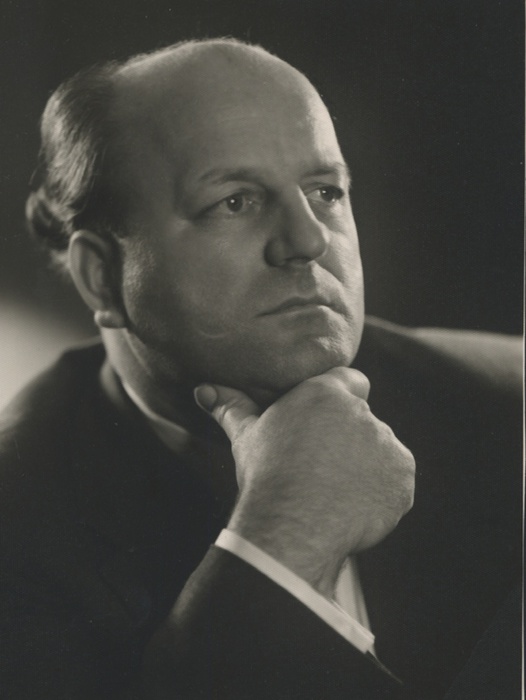Karl Liebl

|
Karl Liebl

|
Liebl was an elementary teacher both before and after WWII; when serving in the army during the war, he met
the son of Paul Bender, the famous Munich basso, with whom he began to study voice after coming home. Bender died in 1947, Liebl
completed his studies with other teachers, and made his debut in 1950, at age 35, in Regensburg, where he stayed one season and
sang Riccardo, Siegmund, Radamès.
From 1951, he sang in Wiesbaden, where he developed into a heldentenor, and where he always
continued to sing for the rest of his career. Contemporarily, though, he had other contracts: 1955–65 in
Cologne, 1956–60 at the Vienna Staatsoper, and 1959–68 at the Metropolitan Opera, where he
sang Lohengrin (his New York debut role), Loge, Erik, Siegmund, the elder Siegfried, Stolzing, Parsifal, Tristan, Ägisth and
Herodes. In Europe, he also sang Tannhäuser, Canio, Macduff, Calaf, Samson, José, Palestrina, Pedro, Kaiser,
Števa, Captain Vere, Kardinal Albrecht (in Mathis der Maler), Otello, Hüon.
As a guest, he appeared in Frankfurt, Stuttgart, Hamburg, Munich, the two large Berlin opera theaters, Amsterdam, Brussels, Antwerp,
Lyon, Zürich, at Covent Garden, in Venice, Rome, Madrid, Chicago, Baltimore, Toronto...
In his later years, he taught voice in Mainz.
Today, he is sorely underrated and neglected: certainly one of the most remarkable tenors of his generation in Germany and
beyond, a dramatic tenor with a slim yet powerful, beautifully produced voice, a singing (as opposed to belting) heldentenor,
capable of piano singing, much in the tradition of Winkelmann or Völker. No, not their equal (the top notes are not his forte); but close enough to be remembered,
and definitely worth listening.
Reference 1: Kutsch & Riemens, reference 2 and picture source: Klaus-Ulrich Spiegel
I would like to thank Georges Cardol for the recording (Aida). I would like to thank Thomas Silverbörg for the recording (Lohengrin). |